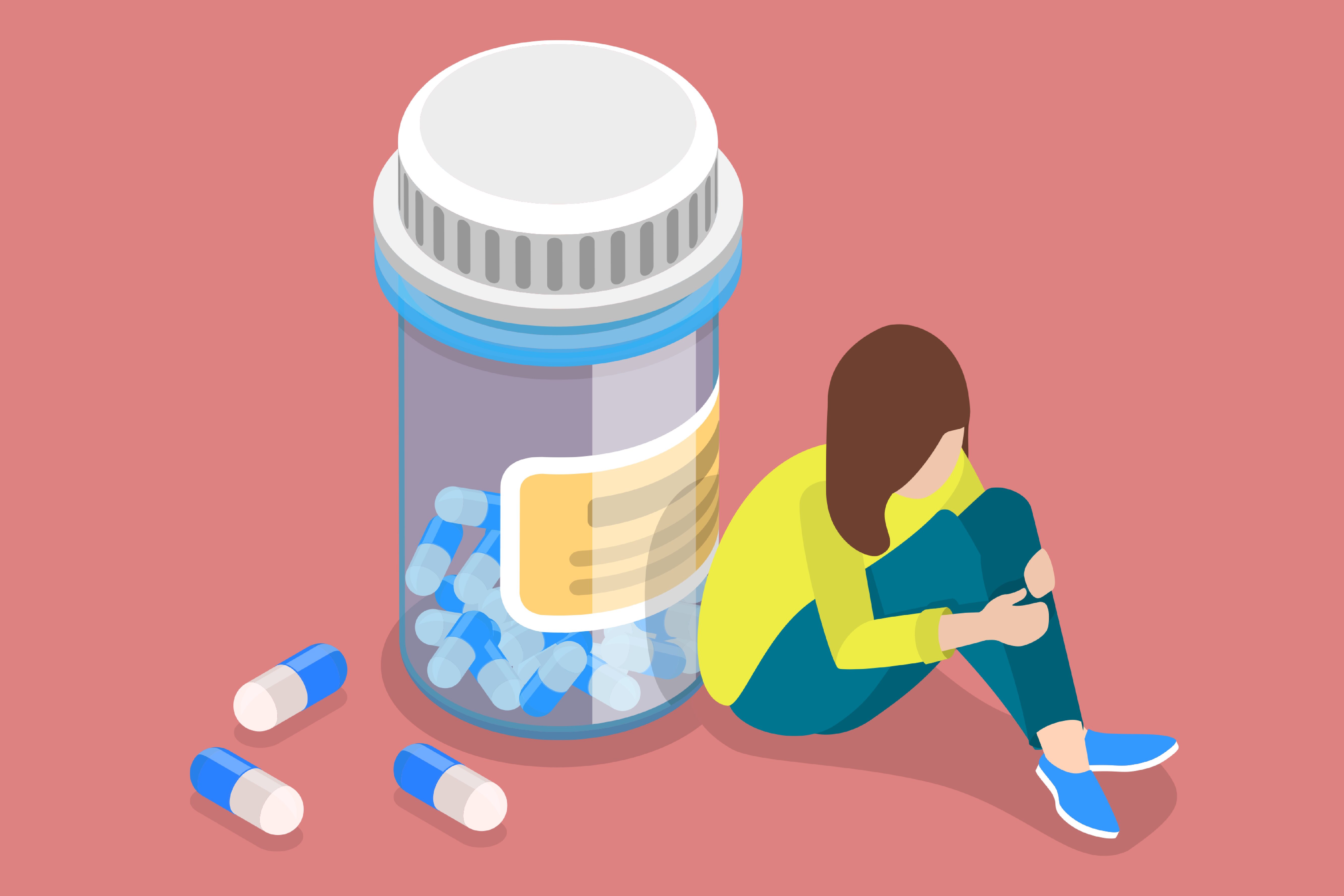
Most of Our Psychiatrists and Therapists Are Now In-Network with: Cigna/Evenorth, Aetna/Meritain, Humana-Commercial and Tricare Plans
Our Psychiatrist and Psychotherapists accept (are “in-network”) with most Cigna/Evernorth, Aetna/Meritain, Humana (Commercial Plans) and Tricare plans.
 Ever Wonder Why It’s So Hard to Find a Psychiatrist on Your Health Insurance Plan?
Ever Wonder Why It’s So Hard to Find a Psychiatrist on Your Health Insurance Plan?
Struggling to locate a psychiatrist who accepts your insurance plan can be quite perplexing. Mental health care is vital, but the process of accessing it can often feel like an uphill battle, especially when you’re seeking a psychiatrist in-network with Cigna/Evernorth, Aetna/Meritain, or Tricare in the State of Florida. In this article, we’ll delve into the reasons behind the challenges of finding such a specialist and offer guidance on how to navigate these complexities while seeking psychiatry services throughout Florida.
Why is it so hard to find a Psychiatrist Near Me who Accepts Health Insurance?
- Limited Network Options: The primary obstacle in finding a psychiatrist who accepts your insurance plan, whether it’s Cigna/Evernorth, Aetna/Meritain, or Tricare, is the limited provider networks these insurance companies maintain. They establish narrow networks to control costs, which means they contract with a limited number of healthcare providers, including psychiatrists. Consequently, locating an in-network psychiatrist within the State of Florida can be a considerable challenge.
- High Demand, Low Supply: The demand for mental health services has been steadily increasing, driven by factors such as the COVID-19 pandemic. However, the supply of psychiatrists has not kept pace with this growing demand. This shortage of mental health professionals compounds the difficulty of finding a psychiatrist who is accepting new patients, particularly within your insurance network.
- Reimbursement Rate Dynamics: Insurance providers negotiate reimbursement rates with healthcare practitioners. In many cases, these rates for mental health services are lower than those for physical health services. This financial factor can dissuade psychiatrists from participating in insurance networks or limit the number of patients they accept through insurance. As a result, you may find it easier to locate a psychiatrist who accepts cash payments but is not in-network with your insurance provider.
- Administrative Burdens: Psychiatrists who accept insurance often face substantial administrative burdens. The paperwork and requirements for insurance billing can be time-consuming and frustrating. Consequently, some psychiatrists may choose to avoid these hassles altogether by not participating in insurance networks, further restricting your options for in-network care.
- Stigma and Discrimination: Mental health stigma still exists in our society, and this can extend to the healthcare system. Some psychiatrists may be reluctant to join insurance networks due to concerns about stigma or discrimination within the insurance industry. This reluctance to participate in networks contributes to the shortage of accessible mental health providers.
- Geographical Disparities: The availability of mental health services, including psychiatrists, can vary significantly depending on your location within the State of Florida. Urban areas typically have more mental health providers, whereas rural areas often face severe shortages. If you reside in an underserved area, it can be even more challenging to find a psychiatrist who accepts your insurance.
- Complex Insurance Plans: Understanding the intricacies of your health insurance plan can be daunting. Different plans come with varying rules, copayments, deductibles, and authorization requirements for mental health services. Navigating these complexities can deter individuals from seeking care and lead to frustration when trying to find an in-network psychiatrist.
How Can I Find a Psychiatrist on My Health Insurance?
So, what can you do if you’re struggling to find a psychiatrist in-network with Cigna/Evernorth, Aetna/Meritain, or Tricare in the State of Florida? Here are some tips to help you navigate this challenging process:
- Review Your Insurance Directory: Begin by checking your insurance company’s online directory of in-network providers. Be aware that these directories may not always be up-to-date, so it’s wise to verify a provider’s participation directly with the psychiatrist’s office.
- Seek Referrals: Consult your primary care physician or trusted friends and family for recommendations. They might refer you to a psychiatrist who accepts your insurance or provide guidance on navigating the mental healthcare system.
- Contact Your Insurance Provider: If you’re facing difficulties in locating a psychiatrist, reach out to your insurance company’s customer service. They can assist you in identifying available providers, clarifying your coverage, and helping with any authorization requirements.
- Consider Telehealth: Telehealth has gained popularity for mental health services, and some psychiatrists may offer virtual appointments, broadening your options beyond your local area.
- Explore Out-of-Network Options: While out-of-network care may be more expensive, it remains an option if you cannot find an in-network psychiatrist. You can inquire about reimbursement or submit claims to your insurance company for partial coverage.
- Advocate for Change: Advocate for improved mental health coverage within your insurance plan. Write to your insurer, engage in patient advocacy groups, and support policies that expand access to mental healthcare.
In conclusion, the challenge of locating a psychiatrist in-network with Cigna/Evernorth, Aetna/Meritain, or Tricare in the State of Florida stems from limited networks, provider shortages, reimbursement rate dynamics, administrative burdens, stigma, geographical disparities, and complex insurance plans. While these obstacles may be frustrating, persistence in seeking the mental healthcare you need is essential. Don’t hesitate to contact your insurance company and explore all available resources to find the right psychiatrist for you. Additionally, advocating for improved mental health coverage can help address these systemic issues and make mental healthcare more accessible throughout Florida, including for Tricare beneficiaries.
Contact us to find out if we are participating in-network with your mental health insurance plan!
Learn More
Unlocking Potential: Psychoeducational Evaluations and Learning Disability Testing in Plantation, FL
Plantation Psychiatry and Plantation Counseling and Wellness, Your Partners in PsychoEducational Assessment and Learning Disability Testing in Plantation, FL
When it comes to education, every child and adult deserves the best possible support to thrive academically and personally. At Plantation Psychiatry and Plantation Counseling and Wellness, we understand the importance of identifying and addressing learning challenges through Psychoeducational Evaluations and Learning Disability Testing in Plantation, FL. Our dedicated team of experts is committed to helping individuals of all ages unlock their full potential. In this comprehensive guide, we’ll explore the significance of educational assessments, the types of evaluations we offer, and how they can make a meaningful difference in your life or your child’s educational journey.
Why Educational Assessments Matter
Educational assessments play a pivotal role in understanding an individual’s unique learning profile. These assessments provide valuable insights into cognitive abilities, academic strengths and weaknesses, and emotional well-being. Whether you’re a concerned parent or an adult seeking answers about your learning challenges, here’s why educational assessments matter:
- Early Intervention: Identifying learning difficulties early allows for timely interventions and tailored support to address specific needs. Early intervention can significantly improve educational outcomes.
- Accurate Diagnosis: Educational assessments help in accurately diagnosing conditions like dyslexia, ADHD, or processing disorders. A proper diagnosis is the first step towards effective management and support.
- Tailored Strategies: Armed with assessment results, educators, therapists, and parents can develop customized strategies to help individuals succeed in academics and personal growth.
- Self-Awareness: For adults, educational assessments can provide a deeper understanding of their strengths and challenges, fostering personal growth and self-awareness.
Comprehensive Psychoeducational Evaluations
Our team at Plantation Psychiatry and Plantation Counseling and Wellness offers a range of Psychoeducational Evaluations designed to meet the unique needs of children, adolescents, and adults. These evaluations are conducted by experienced professionals who are committed to your well-being. Our services include:
- Child and Adolescent Evaluations: We provide comprehensive assessments for children and adolescents to identify learning disabilities, developmental delays, and emotional or behavioral challenges. These evaluations encompass cognitive assessments, academic testing, and emotional assessments to ensure a holistic understanding of your child’s needs.
- Adult Evaluations: Learning challenges can persist into adulthood. Our adult evaluations assess cognitive abilities, emotional well-being, and any potential learning disabilities. These evaluations can guide career choices, enhance personal development, and provide clarity on lifelong challenges.
- ADHD Evaluations: Attention-Deficit/Hyperactivity Disorder (ADHD) can impact individuals of all ages. Our ADHD evaluations help diagnose this condition accurately, enabling individuals to access appropriate treatments and support.
- Dyslexia Assessments: Dyslexia is a common learning disability that affects reading skills. Our dyslexia assessments identify dyslexia and provide recommendations for tailored interventions to improve reading and literacy skills.
- Autism Spectrum Disorder (ASD) Evaluations: ASD evaluations are critical for early intervention and support. Our team includes experts in developmental psychology, autism, and school psychology, ensuring a comprehensive assessment of ASD in individuals of all ages.
The Process: What to Expect When Receiving a Psychoeducational Evaluation
Navigating the process of Psychoeducational Evaluations and Learning Disability Testing may seem daunting, but at Plantation Psychiatry and Plantation Counseling and Wellness, we ensure a supportive and informative experience:
- Initial Consultation: The journey begins with an initial consultation. This is a chance for you to discuss your concerns and goals with our team. We’ll provide guidance on the appropriate evaluation based on your needs.
- Comprehensive Assessment: The evaluation process involves a battery of assessments tailored to your specific concerns. These may include cognitive assessments, academic testing, behavioral observations, and emotional assessments.
- Detailed Report: After the assessments are complete, we compile the findings into a comprehensive report. This report includes a summary of results, diagnostic impressions (if applicable), and recommendations for interventions or support services.
- Feedback and Discussion: We value clear communication. Following the evaluation, you’ll have a feedback session to review the findings and recommendations. This is an opportunity to ask questions and collaborate on a plan for improvement.
Why Choose Plantation Psychiatry and Plantation Counseling and Wellness for Learning Disability Testing and Educational Assessments
At Plantation Psychiatry and Plantation Counseling and Wellness, we take pride in being your trusted partners in educational assessments and learning disability testing in Plantation, FL. Our commitment to excellence, personalized approach, and experienced team sets us apart. Here’s why you should choose us:
- Expertise: Our team includes experts in developmental psychology, autism, and school psychology, ensuring accurate and comprehensive evaluations.
- Customized Solutions: We believe in personalized care. Our assessments lead to tailored strategies that meet the unique needs of each individual.
- Support and Guidance: Beyond assessments, we offer guidance and support to help you navigate the next steps, whether it’s accessing accommodations, therapy, or educational interventions.
- Compassion: We understand the challenges of learning disabilities and neurodiversity. Our compassionate approach ensures a comfortable and supportive experience for individuals and their families.
Unlocking your or your child’s full potential begins with a comprehensive educational assessment. Contact Plantation Psychiatry and Plantation Counseling and Wellness today to schedule a consultation and take the first step toward improved learning and personal growth. Together, we can make a positive difference in your educational journey.
Learn More
How Do You Know If You Have a Good Psychiatrist?
Are Some Psychiatrists Better than Others?
The short answer is: yes. But what makes a good psychiatrist better than his or her colleagues? And how do you find a good psychiatrist?
The answer is given to us from a very interesting study in psychiatry. In 1996, a group of researchers from the University of Chicago, the George Washington University Medical Center, the Atlanta Center for Cognitive Therapy, and the University of Pittsburgh School of Medicine published an article in the Journal of Consulting and Clinical Psychology. The article was titled: “The Role of the Therapeutic Alliance in Psychotherapy and Pharmacotherapy Outcome: Findings in the National Institute of Mental Health Treatment of Depression Collaborative Research Program“.
Here’s what they discovered: a “good” psychiatrist giving a patient a placebo (a pill with no medication in it) got better results (meaning that the patient improved more) than a “bad” psychiatrist giving the patient a real medication. Whoa! Read that again.
What Makes a Good Psychiatrist?
What we now know from decades of research in psychotherapy and psychiatry it that the clinician’s skill at creating a successful therapeutic alliance is more important that any other factor in treatment. (The “therapeutic alliance” is a collaborative working relationship with your psychiatrist or therapist to help you meet your treatment and mental health goals). This means that if your psychiatrist is not very good at this, then you are much less likely to benefit from taking psychiatric medication.
So, at Plantation Psychiatry and Plantation Counseling and Wellness, the quality of the therapeutic alliance is front and center. We also practice within the philosophy of Client-Directed, Outcome-Informed therapy. Finally, we are always working with our therapists and psychiatrists to continually increase their knowledge base and increase their clinical skills. We like to pride ourselves on having happy patients and creating the best clinical and mental health treatment outcomes we can.
How Do I Know if I Have a Good Psychiatrist?
Here are some signs of a good psychiatrist:
- You feel heard, understood and respected.
- Your concerns and preferences are taken into consideration.
- Your doctor explains things to you.
- Your psychiatrist has discussed the benefits of psychotherapy, in addition to psychiatrist medication.
- Your feel your visits are helpful.
- Your symptoms are improving.
Psychiatric Care in Plantation Florida – Fort Lauderdale – Davie – Cooper City – Sunrise – Weston
We are a multi-lingual, multi-specialty practice offering a variety of mental health treatments and evaluations, including psych meds, psychotherapy, counseling, faith-based Christian counseling, group therapy, coaching, classes, and mental health and educational evaluations. We serve patients throughout the state of Florida and serve individuals from all walks of life.
Learn More
Depression Medication: Should You Take Medication for Depression?
Antidepressant medication, or medication to treat depression, can be prescribed by psychiatrists and other physicians to help reduce the symptoms of depression? But is medication a cure for depression, and is depression medication the right choice for you?
Treatment for Depression & Depression Medication: Plantation, Florida via Tele-Health in the Entire State of Florida

Psychotherapist in Plantation Florida
I’m Dr. Chantal, the founder of Plantation Counseling and Wellness is Broward County, FL, When I decided to add psychiatry and medication management to our psychotherapy and wellness practice, it was really important to me to only work with physicians who are thoughtful in the way they prescribe anti depressants. Too often, doctors will prescribe medication without giving thought to the cause of a person’s depression. When psychiatrists or other prescribers do that, it usually doesn’t help people achieve the mental health wellbeing they want. If you’re like most people struggling with some type of depression, you want to feel happy and live your life again. You want to enjoy things and feel motivated, and you want to have more energy and a more positive feeling about your life. We want that for you too!
Plantation Psychiatry
That’s why when I opened Plantation Psychiatry (a boutique division of Plantation Counseling and Wellness) to serve the psychiatry and mental health needs of children, adolescents and adults, I specifically looked for psychiatrists who are interested in collaborating with our psychologists, psychotherapists or family therapists to help figure out the causes of depression, and give each person treatment recommendations that are uniquely tailored to their needs and current situation.
While you might be interested in reading my blog post on the different Types of Depression and the different Treatments for Depression, in this post I’ll tell you a little bit about the Different Types of Medication for Depression.
Depression Medications
Selective Serotonin ReUptake Inhibitors (SSRI’s)
SSRI’s or selective serotonin re-uptake inhibitors, are sometimes referred to as “new generation antidepressants”. These medications work by increasing the amount of serotonin available in your brain. While no one can tell you that low serotonin levels causes depression (some health care providers may tell you that but the truth is that researchers have not yet proven that low serotonin levels cause depression), we do know that increasing the serotonin available in the brain, for many people, leads to improvements in their mood. That means that they start to feel better after taking an SSRI for a few weeks.
Examples of SSRI’s include: Prozac (fluoxetine), Zoloft (sertraline), Paxil (paroxetine), and Celexa (citalopram).
Serotonin and noradrenaline reuptake inhibitors (SNRIs)
Serotonin and Noadrenaline Reuptake Inhibitors (SNRI’s) work in a way that is similar to SSRI antidepressant medications. SNRI’s make both serotonin and norepinephrine more available in your brain. Norepinephrine (also called noradrenaline) is a chemical in your body that helps to transmit signals among different parts of your nervous system.
When your levels of norepinephrine are too low, you might experience some of the following anxiety, depression or physical symptoms:
- Headaches;
- Memory Problems;
- Sleeping Problems;
- Anxiety;
- Depression;
- Attention, Focus or Hyperactivity Problems;
- Hypotension (low blood pressure);
- Hypoglycemia (low blood sugar);
- Problems with Heart Rate.
SNRI’s include: Effexor (venlafaxine), Pristiq (desvenlafaxine), Cymbalta (duloxetine), and others.
TriCyclic and TetraCyclic AntiDepressant Medication
TriCyclic antidepression medication has been around longer, and is sometimes referred to as “older generation antidepressants”. TriCyclic or TetraCyclic antidepressant meds act on several neurotransmitters at once. They help to change your brain chemistry and may relieve the symptoms of depression, anxiety, OCD (obsessive-compulsive disorder), and and nerve-related (neuropathic) pain.
Examples of Tricyclic and Tetracyclic medications include: Elavil (amitrityline), Remeron (mertazepine), Seroquel (quetiapine) and others.
What is the Best Treatment for Depression: Medication or Psychotherapy?
Antidepressants and psychotherapy have both been shown to be effective treatments for depression, but the best depression treatment for you will really depend on your depression symptoms and seems to have caused your depression symptoms. After you doctor has had an opportunity to meet with you and fully assess your case, he/she will explain different depression treatment options to you and make some recommendations based on their experience treating depression.
Book your initial new patient appointment, or send us an email to get in touch with our Clinical Coordinator.
[gravityform id=”1″ title=”true” description=”true”] Learn More
What is a Psychiatrist?
What is a Psychiatrist?
A psychiatrist is a medical doctor (someone who went to medical school) who completed medical residency in Psychiatry. While many years ago psychiatrists would typical both prescribe psychiatric medication and also provide lengthy psychotherapy (think Sigmund Freud and Carl Jung), nowadays it’s much more common for psychiatrists to prescribe medication, while the therapy is left to other psychotherapists, such a psychologists, licensed mental health counselors, licensed marriage and family therapists, and licensed clinical social workers. School counselors and school psychologists can also provide some forms of psychotherapy. Advance Registered Nurse Practitioners (ARNP) can also prescribe psych meds and provide psychotherapy, although in general they have less training about medicine and medications than physicians do, and less training in psychotherapy than therapists do.
What Does a Psychiatrist Do?
A psychiatrist can do many things to help you with your mental health concerns. These can include:
- Evaluate your symptoms
- Ordering lab work
- Make a diagnosis when applicable
- Work collaboratively with you to develop a treatment plan
- Prescribe medication
- Talk with you to see if other treatment approaches, such as psychotherapy or intensive outpatient programs might be beneficial to you
- Continue to work with you until you achieve your treatment goals
What Can a Psychiatrist Help You With?
- Anxiety, Worry, Fears and Phobias
- Sleep Problems and Insomnia
- Difficulties with Focus and Concentration – ADD (Attention Deficit Disorder) – ADHD
- Mood Swings or Emotional Outbursts
- Depression
- Body Image Problems and Eating Disorders
- Bipolar Disorder
- Major Life Changes (such as Postpartum Depression, Death of a Loved One, Depression after Heart Surgery)
- Suicidal Thoughts or Self-Harm
- Anger and Impulse-Control Problems
- Hair Pulling or Skin Picking (Trichitillomania)
- Obsessive Thinking, Compulsions, or OCD
- Intrusive, Disturbing, or Recurring Thoughts
- Hallucinations of Delusions
- Uncontrolled Use of Drugs or Alcohol
- Trauma and PTSD
- Other Concerns with your Mental Health
Psychiatrist in Plantation, FL and throughout the entire state of Florida (via Tele-Health)
At Plantation Psychiatry and Plantation Counseling and Wellness our entire team of mental health professionals (including, psychiatrists, psychologists, psychotherapists, licensed mental health counselors, licensed marriage and family therapists, and licensed clinical social workers) is dedicated to providing you with the best mental health treatments available. We individualize our care to the unique needs of each patient, and utilize only evidence-based, scientfically-validated mental health treatment approaches. We work in a compassionate, collaborative manner with our patients, taking into account your concerns and preferences.
[gravityform id=”1″ title=”true” description=”true”] Learn More
Am I Depressed? 6 Signs You Should Know About
Signs You Have Depression or Anxiety
There are many types of depression and depression symptoms can vary. Depression and anxiety are very common and there are several different ways that we can help with depression.
Here are 6 Signs or Symptoms of Clinical Depression You Should Know About:
- You’ve been feeling down or irritable.
- You don’t enjoy things much anymore or feel much joy.
- You are struggling to concentrate.
- You are tired; your energy levels are depleted.
- Your sleeping or eating patterns have changed.
- You have feelings of guilt or worthlessness.
While not everyone with depression will experience these symptoms, if you haven’t felt happy or felt like yourself lately, our team of mental health professionals can help you figure out what’s going on and what to do about it.
Learn More
How to Talk About Your Mental Health – Asking For Mental Health Help
Taking Good Care of Yourself by Getting Mental Health Help
Coming to a psychotherapy or psychiatry appointment can feel a little scary to most people. After all, most of us were taught at some point in their lives that we were supposed to deal with our mental health problems and emotional or relationship problems on our own. But that is not true! In fact, successful people use the services of therapists, psychologists, counselors, coaches, and psychiatrists on a regular basis. That’s what helps them lead healthy, happy, and successful lives.
We love this Ted Talk about good mental health, preventative mental health care, and get mental health help:
There are lots of reasons to see a psychiatrist or therapist. Here are a few signs that working with our elite team of mental health professionals would benefit you.
Signs of Mental Health Problems
- You’ve been feeling low or irritable;
- You find yourself worrying a lot.
- You feel sad or cry often.
- You feel sort of numb.
- You’ve lost interest in activities that you used to enjoy.
- You’ve been socializing less and spending more and more time alone.
- You avoid things that make you uncomfortable or scare you.
- You’re fighting with your kids, your romantic partner, or other family members.
- You feel like no one cares about you.
- You have difficulty sleeping / insomnia or are sleeping too much.
- Your are using drugs or alcohol to sleep, to feel good and have fun, or to escape unpleasant feelings or thoughts.
- You have difficulty relaxing.
- You have difficulty focusing or concentrating.
- You have difficulty starting or completing tasks.
- Your thoughts feel confused.
- You are experiencing sexual problems.
- You’ve experienced a major life transition, loss or grief.
- You think about suicide.
- You feel angry often.
- You feel frustrated often.
Most people who receive psychotherapy and other mental health treatment services report that their symptoms either significantly decrease or go away. And most people who receive psychiatric care or psychotherapy/counseling report a high level of satisfaction with the service and with their clinician.
Recently, Senator John Fetterman from Pennsylvania checked himself into Walter Reed Medical Center to receive treatment for clinical depression. He is setting a great example for all of us! Making sure that the emotional and mental parts of ourselves are healthy and well cared for is not only a great thing to do for ourselves, but it’s the best thing we can do for our children, spouses, friends, and family.
Learn More